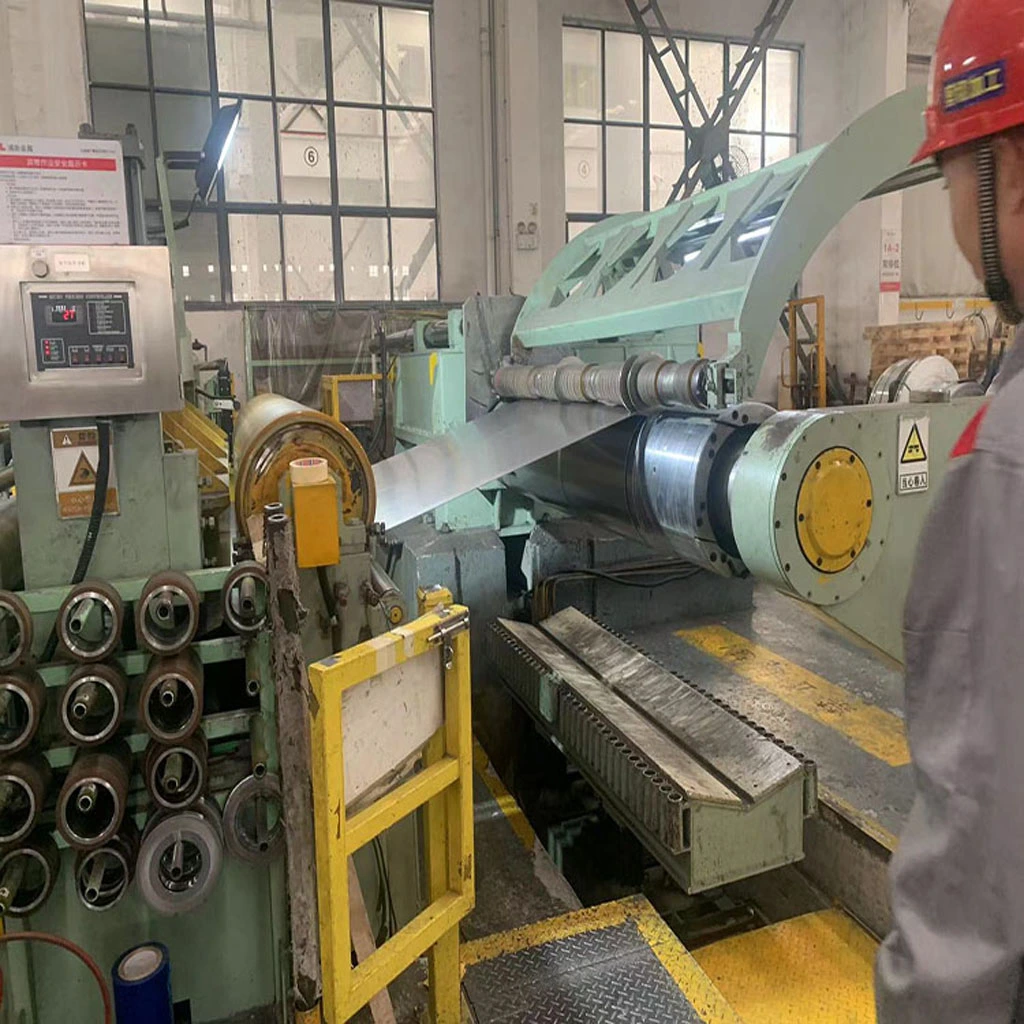What is 403 stainless steel?
2023-07-07
What is 403 stainless steel?
403 stainless steel is a type of martensitic stainless steel alloy that is commonly used in various applications due to its excellent combination of strength, corrosion resistance, and affordability. It is composed primarily of iron, with significant amounts of chromium and a small percentage of carbon. The addition of chromium provides 403 stainless steel with its corrosion-resistant properties, making it suitable for environments where exposure to moisture or certain chemicals is expected. This stainless steel grade also exhibits good hardness and wear resistance, making it suitable for applications requiring durability, such as pump components, valves, and industrial equipment. Additionally, 403 stainless steel can be easily heat treated to enhance its mechanical properties, further expanding its range of applications.
Chemical composition of 403 stainless steel
403 stainless steel is a martensitic stainless steel alloy that contains a specific combination of elements. The chemical composition of 403 stainless steel typically includes:
Carbon (C): 0.15% maximum
Silicon (Si): 0.50% maximum
Manganese (Mn): 1.00% maximum
Phosphorus (P): 0.040% maximum
Sulfur (S): 0.030% maximum
Chromium (Cr): 11.50-13.50%
Note that the specific composition may vary slightly depending on the manufacturing process and any specific requirements or variations in the standard.
What are the mechanical properties of 403 stainless steel?
The mechanical properties of 403 stainless steel can vary depending on factors such as heat treatment, cold work, and the specific composition. However, here are some typical mechanical properties for annealed 403 stainless steel:
Tensile Strength: 485 MPa (70,400 psi) minimum
Yield Strength: 275 MPa (39,900 psi) minimum
Elongation: 20% minimum
Hardness: 95 HRB (Rockwell B hardness) maximum
It’s important to note that these values are general guidelines and may vary based on specific manufacturing processes and conditions.
What are the physical properties of 403 stainless steel?
The physical properties of 403 stainless steel include:
Density: The density of 403 stainless steel is typically around 7.7 g/cm³ or 0.278 lb/in³.
Melting Point: The melting point of 403 stainless steel is approximately 1480-1530°C or 2700-2790°F.
Thermal Conductivity: The thermal conductivity of 403 stainless steel is around 24.9 W/m·K or 172 BTU/(hr·ft·°F) at room temperature.
Electrical Resistivity: The electrical resistivity of 403 stainless steel is about 72 μΩ·cm or 28.4 μΩ·in at room temperature.
Magnetic Properties: 403 stainless steel is ferromagnetic, which means it exhibits magnetic properties and can be magnetized.
Coefficient of Thermal Expansion: The coefficient of thermal expansion for 403 stainless steel is typically around 10.6 µm/m·K or 5.9 µin/in·°F.
These values are general properties and can vary slightly depending on specific manufacturing processes and conditions.
What are the characteristics of 403 stainless steel?
403 stainless steel possesses several characteristics that make it suitable for specific applications. Here are some key characteristics of 403 stainless steel:
Good Corrosion Resistance: 403 stainless steel exhibits good resistance to corrosion in mild environments. It is more resistant to corrosion compared to carbon steel, but less resistant than other stainless steel grades with higher chromium and nickel content.
Moderate Strength: 403 stainless steel offers moderate strength, making it suitable for applications that require structural integrity and durability.
Heat Treatability: The martensitic structure of 403 stainless steel allows it to be easily heat treated for increased hardness and strength. Various heat treatment methods, such as quenching and tempering, can be employed to achieve desired mechanical properties.
Wear Resistance: Due to its hardness, 403 stainless steel demonstrates good wear resistance. It can withstand abrasion and impact, making it suitable for applications involving mechanical parts subject to friction and wear.
Magnetic Properties: 403 stainless steel is ferromagnetic, meaning it is attracted to magnets. This magnetic property can be advantageous in certain applications, such as in the manufacturing of magnetic components or equipment.
Common Applications of 403 Stainless Steel
403 stainless steel finds applications in various industries due to its specific properties. Its combination of moderate strength, corrosion resistance, and heat treatability makes it suitable for applications where hardness, durability, and resistance to mild corrosive environments are required. Common applications include components for automotive exhaust systems, cutlery, surgical instruments, valve parts, pump shafts, and industrial equipment subjected to wear and abrasion. The magnetic properties of 403 stainless steel also make it useful in applications where magnetism is desired, such as in the production of magnetic components or equipment. Additionally, its relatively lower cost compared to some other stainless steel grades makes it an attractive option for applications that require a balance of performance and affordability.
